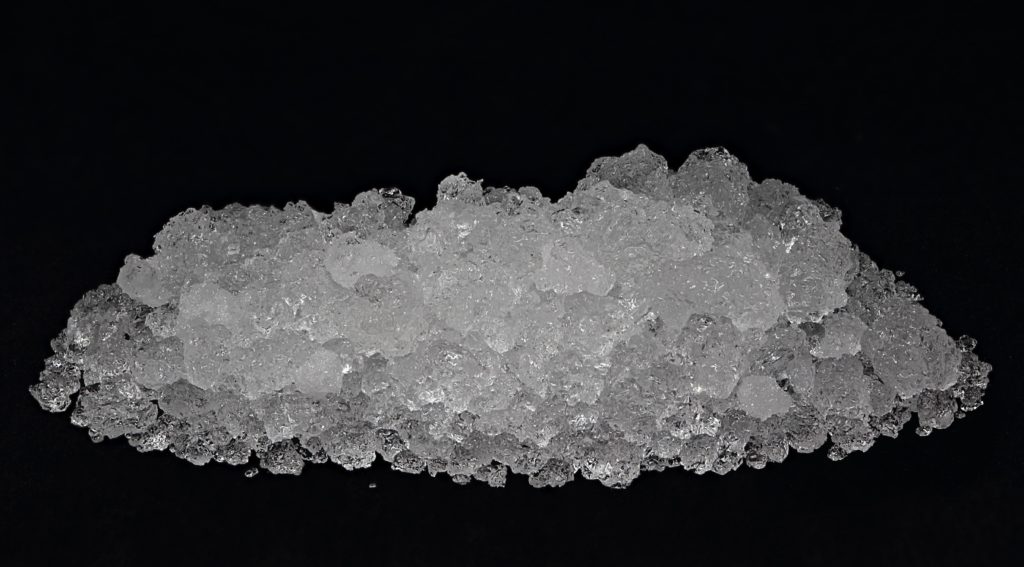Blog
What Is Sodium Carbonate – Uses, Benefits, and How It Works
Sodium carbonate, often referred to as soda ash or washing soda, is a sodium salt of carbonic acid. This inorganic compound is widely used in various industries and households for its versatile properties. But what is sodium carbonate exactly, and why is it so important?
Sodium carbonate is a white, odorless powder that is soluble in water. It plays a key role in cleaning products, glass manufacturing, and even in the food industry. Understanding what sodium carbonate is and how it’s used can offer valuable insights for businesses and consumers alike.
The Chemical Composition of Sodium Carbonate
At its core, sodium carbonate is composed of sodium (Na), carbon (C), and oxygen (O) atoms, with the chemical formula Na₂CO₃. This means each molecule contains two sodium atoms, one carbon atom, and three oxygen atoms.
Sodium naturally occurs in mineral deposits or can be synthesized from sodium chloride (common salt) and limestone. Due to its alkaline nature, it is used in numerous applications, including water softening, pH balancing, and more.
Common Uses of Sodium Carbonate
1. Sodium Carbonate in Cleaning Products
One of the most common uses of sodium is in cleaning products. It acts as a powerful detergent booster, helping to break down stains and soften water, making cleaning agents more effective. Many households use sodium to clean laundry, remove stubborn stains, and clean surfaces like floors and countertops.
2. Sodium Carbonate in Glass Manufacturing
Sodium plays an essential role in glass production. It reduces the melting point of silica, the main component of glass, making it easier to shape and mold. This process is fundamental in the production of window glass, bottles, and other glass products.
3. Sodium Carbonate in Food Processing
In the food industry, sodium is used as an acidity regulator. It helps control the pH levels in baked goods and other processed foods, ensuring consistent quality and taste. Sodium also helps prevent the browning of certain foods, making it a valuable ingredient in food preservation.
4. Sodium Carbonate for Water Softening
Water hardness is caused by the presence of calcium and magnesium ions. Sodium is often used to soften water by precipitating these minerals out. This makes it useful in both residential water treatment systems and industrial water processing facilities.
5. Sodium Carbonate in Dyeing and Printing
In the textile industry, sodium is commonly used in dyeing and printing fabrics. It helps the dye adhere to the fibers more effectively, ensuring vibrant and long-lasting colors.

The Benefits of Sodium Carbonate
1. Effective and Versatile Cleaning Agent
Sodium carbonate’s ability to boost the effectiveness of detergents makes it an essential ingredient in household cleaning products. It helps break down grease, dirt, and stains, making your cleaning routine more efficient.
2. Environmentally Friendly
Compared to other chemicals, sodium is a relatively eco-friendly option. It naturally breaks down in the environment and poses minimal risk to ecosystems. This makes it a safer choice for industries looking to reduce their environmental footprint.
3. Cost-Effective Solution
Sodium is widely available and cost-effective, making it a go-to ingredient for many businesses. Whether used in cleaning, manufacturing, or food processing, sodium offers a budget-friendly solution without sacrificing quality.
4. pH Balancer
Its alkaline properties make sodium ideal for balancing pH levels. This is especially useful in water treatment, food processing, and various chemical reactions where maintaining the correct pH is critical.
How Sodium Carbonate Works
Sodium works by releasing sodium ions and carbonate ions when dissolved in water. These ions react with other substances to achieve the desired effect, such as softening water, neutralizing acids, or aiding in chemical reactions.
For example, in cleaning products, sodium works by increasing the alkalinity of the water, which helps to break down oils, grease, and dirt. In glass manufacturing, it reduces the melting temperature of silica, making the production process more energy-efficient.
Is Sodium Carbonate Safe to Use?
When used correctly, sodium is generally safe for both industrial and household applications. However, it is important to handle it with care, as the powder can irritate the skin and eyes. Always follow safety guidelines when using products containing sodium.
If ingested in large amounts, sodium can cause gastrointestinal discomfort. It is always recommended to store it safely out of reach of children and pets.
Sodium Carbonate vs. Sodium Bicarbonate: What’s the Difference?
While sodium and sodium bicarbonate (baking soda) are both alkalis, they are different compounds. Sodium bicarbonate (NaHCO₃) is milder and often used in baking, whereas sodium is stronger and typically used for industrial purposes.
Sodium bicarbonate is commonly used as a leavening agent in baking, while sodium is better suited for cleaning, glass making, and other heavy-duty tasks. Understanding these differences helps consumers and businesses choose the right product for their specific needs.
Why Choose Sodium Carbonate for Industrial and Household Use?
Sodium stands out as a reliable, versatile, and cost-effective compound with a wide range of uses. Whether you need it for industrial purposes like glass manufacturing or everyday tasks like cleaning, sodium is an excellent choice. Its ability to enhance performance, balance pH, and provide a budget-friendly option makes it highly valuable across many sectors.
